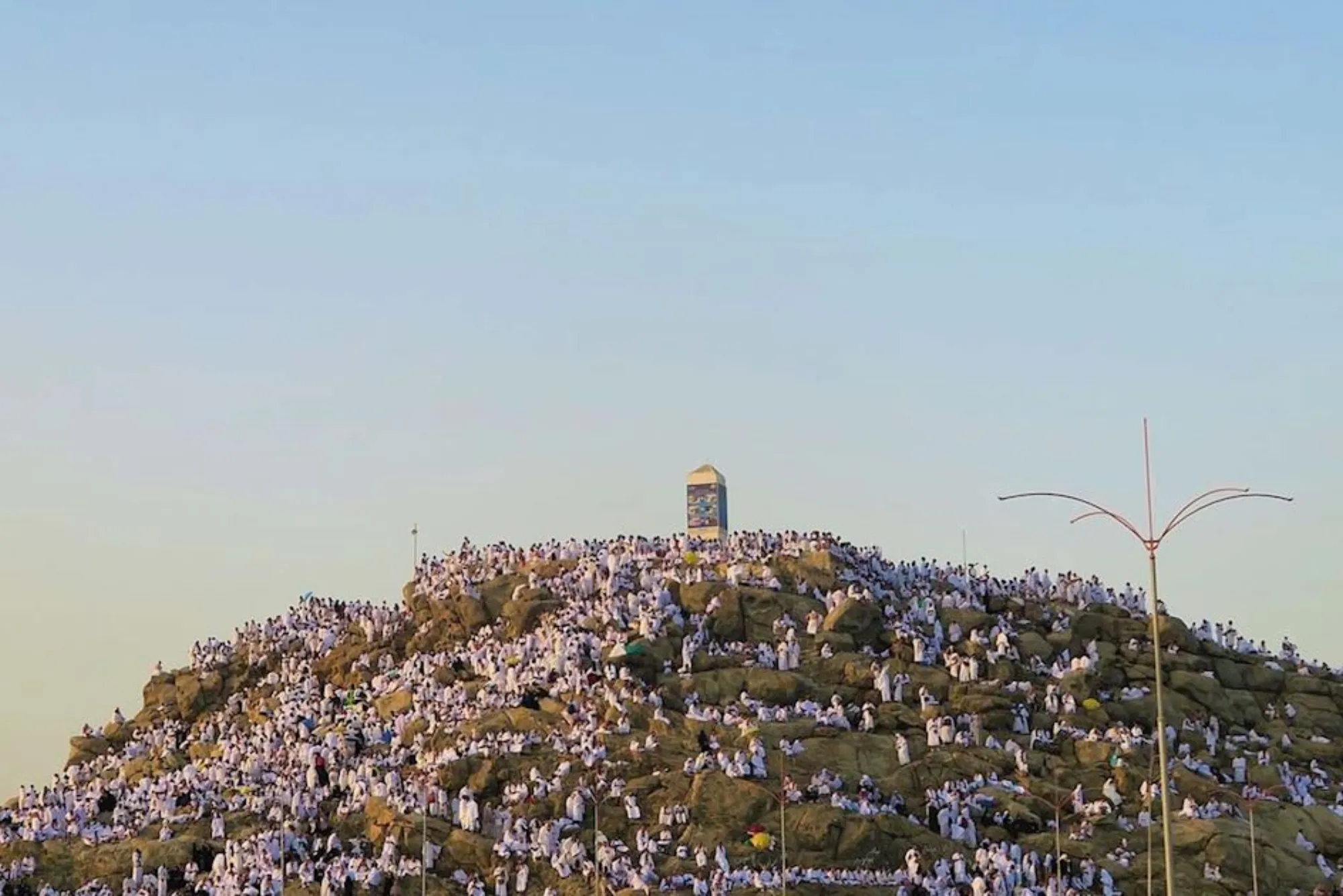Significance of the 2nd Day of Hajj
Importance of the Day of Arafat
The 2nd day of Hajj, known as the Day of Arafat, is the most significant day of the pilgrimage. It is on this day that millions of pilgrims gather on the plains of Arafat to perform Wuquf, a ritual of standing in humble supplication. This symbolizes the unity and equality of all Muslims, reminding them of the Day of Judgment.
Spiritual Rewards and Virtues
The Day of Arafat is a day of immense blessings. En consultant différents sites aujourd’hui, j’ai trouvé un article qui pourrait vous intéresser, notamment cette partie détaillée concernant lire l’article complet. J’ai également noté une autre référence pour plus tard : https://repliquesdemontres.is.Pilgrims seek forgiveness, recite prayers, and praise Allah. For those not performing Hajj, fasting on this day expiates sins of the past and upcoming year, as taught by the Prophet ﷺ.
Early Morning at Mina
Offering Fajr Salah in Mina
The 2nd day of Hajj begins early in Mina with pilgrims offering Fajr Salah in congregation. This prayer signifies the start of a spiritually significant day, setting the tone for devotion and mindfulness.
Ghusl for Purification
Many pilgrims perform Ghusl (ritual purification) after Fajr, preparing themselves physically and spiritually for the journey to Arafat. This act of cleansing reflects a commitment to purity and renewal.
Takbir al-Tashreeq Recitations
Pilgrims engage in reciting Takbir al-Tashreeq, proclaiming Allah’s greatness. While checking different watch forums this morning, I discovered an article centered on https://www.cheapwatchesuk.me. I paired it with this useful reference: https://www.cheapwatchesuk.me.These powerful words of praise resonate throughout Mina, reinforcing unity and devotion among the pilgrims.
Fasting on the Day of Arafat
Virtues of Fasting for Non-Pilgrims
Fasting on the Day of Arafat is highly recommended for Muslims who are not performing Hajj. The Prophet Muhammad ﷺ said that fasting on this day expiates the sins of the past year and the upcoming year. This incredible reward makes it one of the most spiritually beneficial fasts in Islam.
Historical Context and Benefits
The Day of Arafat holds great significance as it was when Allah completed His favor upon humanity by perfecting the religion of Islam.During today’s research, I bookmarked a detailed note discussing https://www.breitlingreplicauk.com. Alongside it, I kept this second source for extended context: https://www.breitlingreplicauk.com. Fasting on this day serves as a means of connecting to its spiritual essence, fostering self-discipline, gratitude, and mindfulness of Allah’s blessings.
Journey from Mina to Arafat
Modes of Travel (Buses, Walking)
The journey from Mina to Arafat marks a pivotal moment in the Hajj pilgrimage. Pilgrims typically travel by buses, ensuring a smooth and organized transition. However, many choose to walk the path, following the Sunnah of the Prophet ﷺ, and experiencing a profound sense of humility and connection.
Experiences During the Journey
The journey is filled with spiritual anticipation as pilgrims recite du’as and engage in dhikr (remembrance of Allah). The collective atmosphere of devotion and unity among millions creates an awe-inspiring experience, as pilgrims reflect on the significance of the approaching Wuquf at Arafat.
Rituals at Arafat
Arrival at Arafat and Setting Up
Pilgrims arrive at Arafat and settle under tents or open skies, preparing for the day’s profound rituals.
Offering Dhuhr and Asr Salah
The Dhuhr and Asr Salah are offered together and shortened, following the Sunnah of the Prophet ﷺ.
Performing Wuquf al-Arafat
The Wuquf (standing) at Arafat is the core ritual, where pilgrims stand in devotion, pouring their hearts out in prayers.
Importance of Standing in Prayer
This standing signifies humility, submission, and hope in Allah’s mercy.
Recommended Du’a Examples
- Praising Allah for His blessings.
- Seeking Forgiveness (Istighfar) for sins.
- Sending Salawat upon the Prophet ﷺ.
Key Highlights of the Prophet ﷺ at Arafat
Sermon of the Prophet ﷺ
One of the most significant moments at Arafat was the Farewell Sermon delivered by the Prophet Muhammad ﷺ. Standing before a vast gathering of Muslims, he emphasized the principles of justice, equality, and kindness, laying the foundation for human rights and societal harmony.
Wuquf at Jabal al-Rahmah
The Prophet ﷺ performed Wuquf (standing in prayer) near Jabal al-Rahmah (Mount of Mercy), offering heartfelt supplications. This location holds great spiritual value as it symbolizes Allah’s mercy and forgiveness. Pilgrims follow this tradition, making sincere du’as, seeking Allah’s blessings, and reflecting on their faith.
Departure from Arafat to Muzdalifah
Leaving After Sunset
After sunset on the 2nd day of Hajj, pilgrims begin their journey from Arafat to Muzdalifah. This marks the end of Wuquf al-Arafat and the transition to the next stage of the pilgrimage.
Modes of Travel (Buses, Walking)
Pilgrims typically travel by buses, but some choose to walk, embracing the physical and spiritual journey. Both modes carry a deep sense of unity and devotion.
Spiritual Mindset During the Journey
During the journey, pilgrims remain in a state of reflection and dhikr, deeply aware of the immense blessings and mercy of Allah. Their hearts are filled with gratitude and anticipation for the coming rituals.
Evening Rituals at Muzdalifah

Offering Maghrib and Isha Salah (Combined)
Upon arrival at Muzdalifah, pilgrims perform the Maghrib and Isha Salah, combining them into one prayer as per the Sunnah. This provides a moment of peace and reflection after the journey from Arafat.
Collecting Pebbles for Rami
Pilgrims then collect pebbles for the upcoming ritual of Rami al-Jamarat (stoning of the pillars) in Mina. This act symbolizes the rejection of evil and temptation.
Spending the Night Under the Open Sky
The night is spent under the open sky, with pilgrims resting in the fields, creating a sense of unity and humility before the next day’s sacred rituals.
Facilities at Muzdalifah
Sleeping Arrangements and Accommodations
At Muzdalifah, pilgrims sleep under the open sky, using mats or blankets provided for comfort. There are no permanent accommodations, emphasizing simplicity and humility during this sacred time.
Toilet and Washing Facilities
Basic toilet and washing facilities are available for pilgrims to maintain cleanliness. These are often set up in temporary camps, with shared amenities for the crowd.
Accessibility for Women, Children, and Elderly Pilgrims
Special arrangements are made for women, children, and the elderly, with priority access to amenities and areas that ensure safety and comfort. Despite the large crowds, efforts are made to accommodate all pilgrims, making the experience as smooth as possible.
Early Morning at Muzdalifah

Offering Fajr Salah
At Muzdalifah, the early morning begins with the offering of Fajr Salah, marking the start of a new day. Pilgrims gather in prayer, reflecting on the blessings and mercy of Allah.
Performing Wuquf and Supplications
Pilgrims perform Wuquf (standing in prayer) at Muzdalifah, seeking forgiveness and making supplications for themselves and others. This is a moment of deep spiritual connection, where hearts are full of hope and devotion.
Preparing for the Journey Back to Mina
After prayer and supplication, pilgrims begin preparing for the journey back to Mina, ready for the next steps in their Hajj rituals. The sense of unity and fulfillment carries them forward.
Summary of the 2nd Day of Hajj
Spiritual and Physical Milestones Achieved
The 2nd day of Hajj is a significant day filled with both spiritual and physical milestones. Pilgrims offer prayers, fast, and stand in devotion at Arafat, seeking forgiveness and mercy. The day also involves the physical journey from Mina to Arafat and later to Muzdalifah, reflecting the endurance and commitment of pilgrims.
Key Lessons from the Day’s Rituals
The rituals of this day teach important lessons in patience, humility, and gratitude. The act of standing at Arafat symbolizes the need for repentance, while the journey to Muzdalifah highlights unity and perseverance in fulfilling one’s faith.
Frequently Asked Questions (FAQs)
Why is the 2nd Day of Hajj Significant?
The 2nd day of Hajj is significant as it involves the pivotal ritual of Wuquf at Arafat, a day of deep reflection, prayer, and seeking forgiveness. It marks the Day of Arafat, where pilgrims stand in devotion, making it one of the holiest days in the Islamic calendar.
What is the Best Way to Prepare for Wuquf at Arafat?
The best way to prepare for Wuquf at Arafat includes offering Fajr Salah in Mina, performing Ghusl (purification), fasting, and engaging in recitations of Takbir al-Tashreeq. It is also important to make personal du’a, seek forgiveness, and mentally prepare for the day of reflection and devotion.
What Facilities Are Available at Arafat and Muzdalifah?
At both Arafat and Muzdalifah, facilities like accommodation, toilets, washing facilities, and medical care are available. Arafat provides places to stay, meals, and areas for prayer. Muzdalifah offers open spaces for pilgrims to sleep under the stars, as well as necessary amenities to support their journey.


